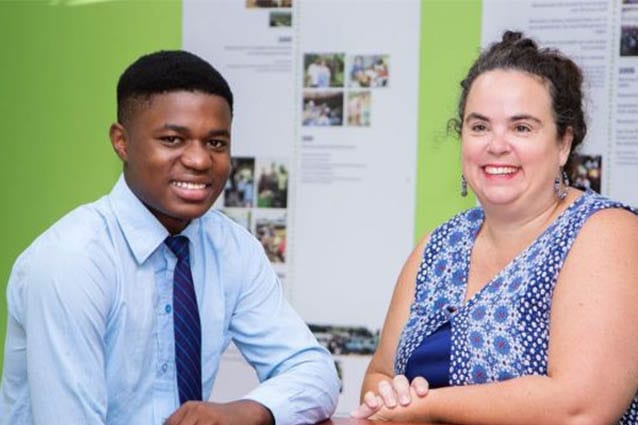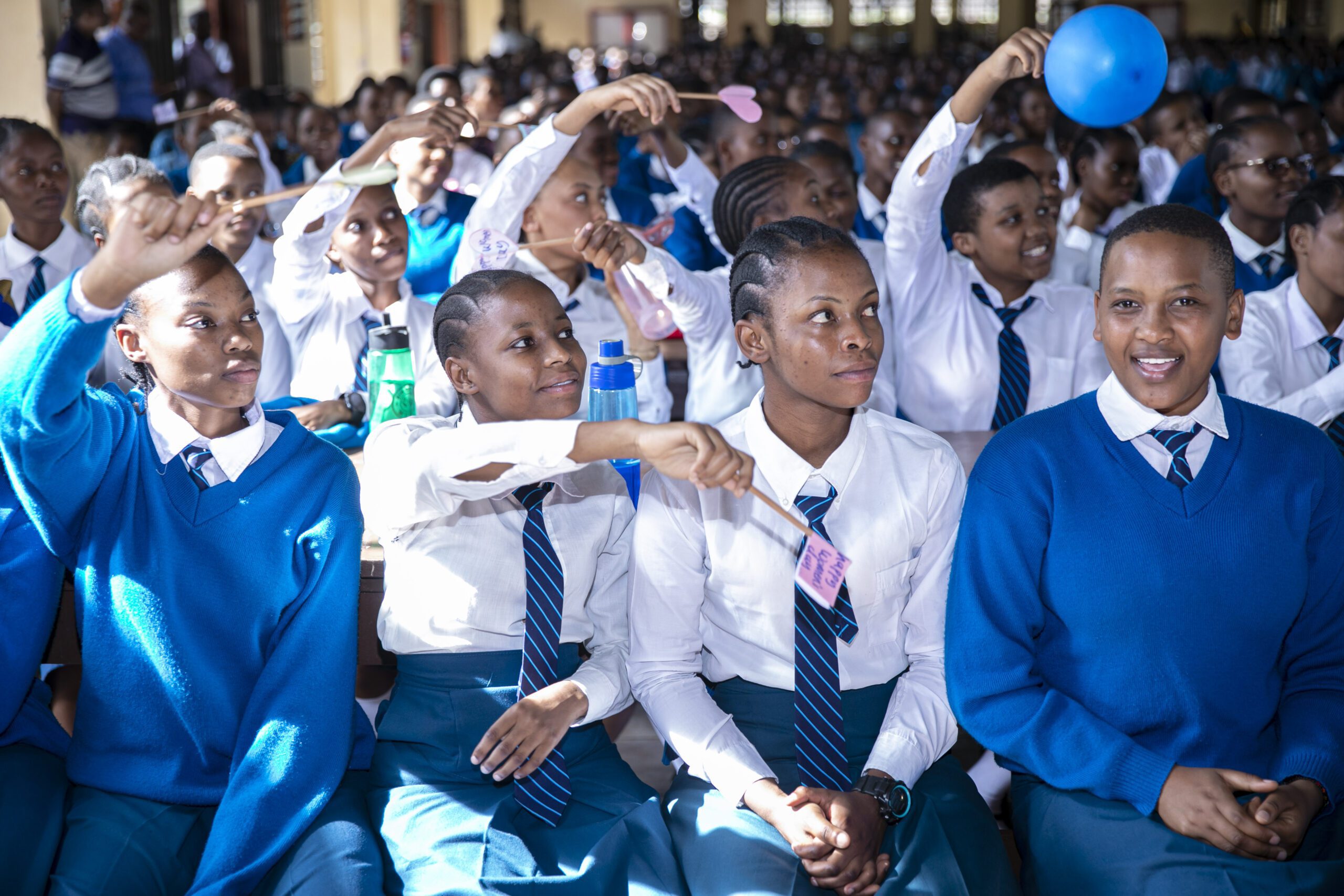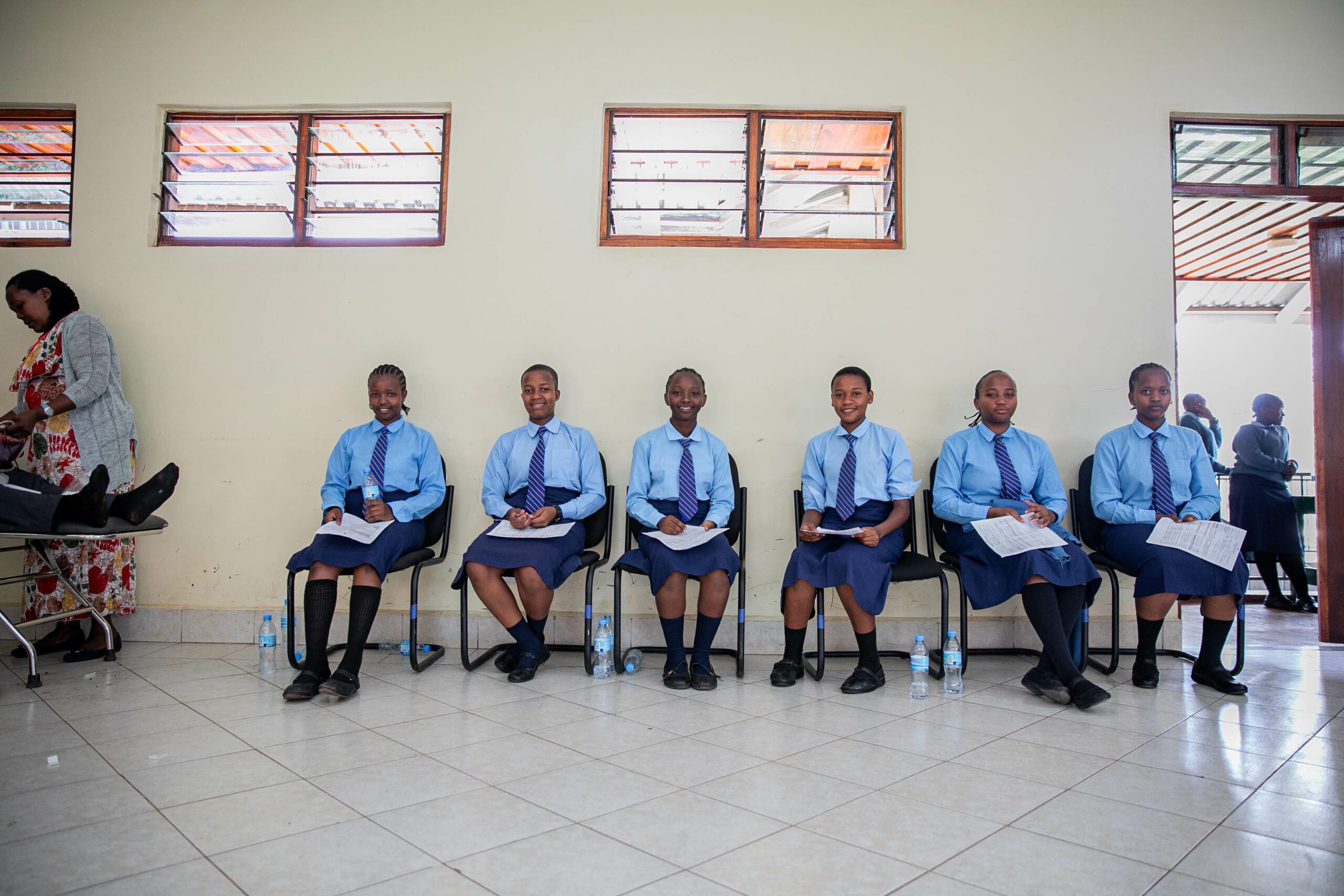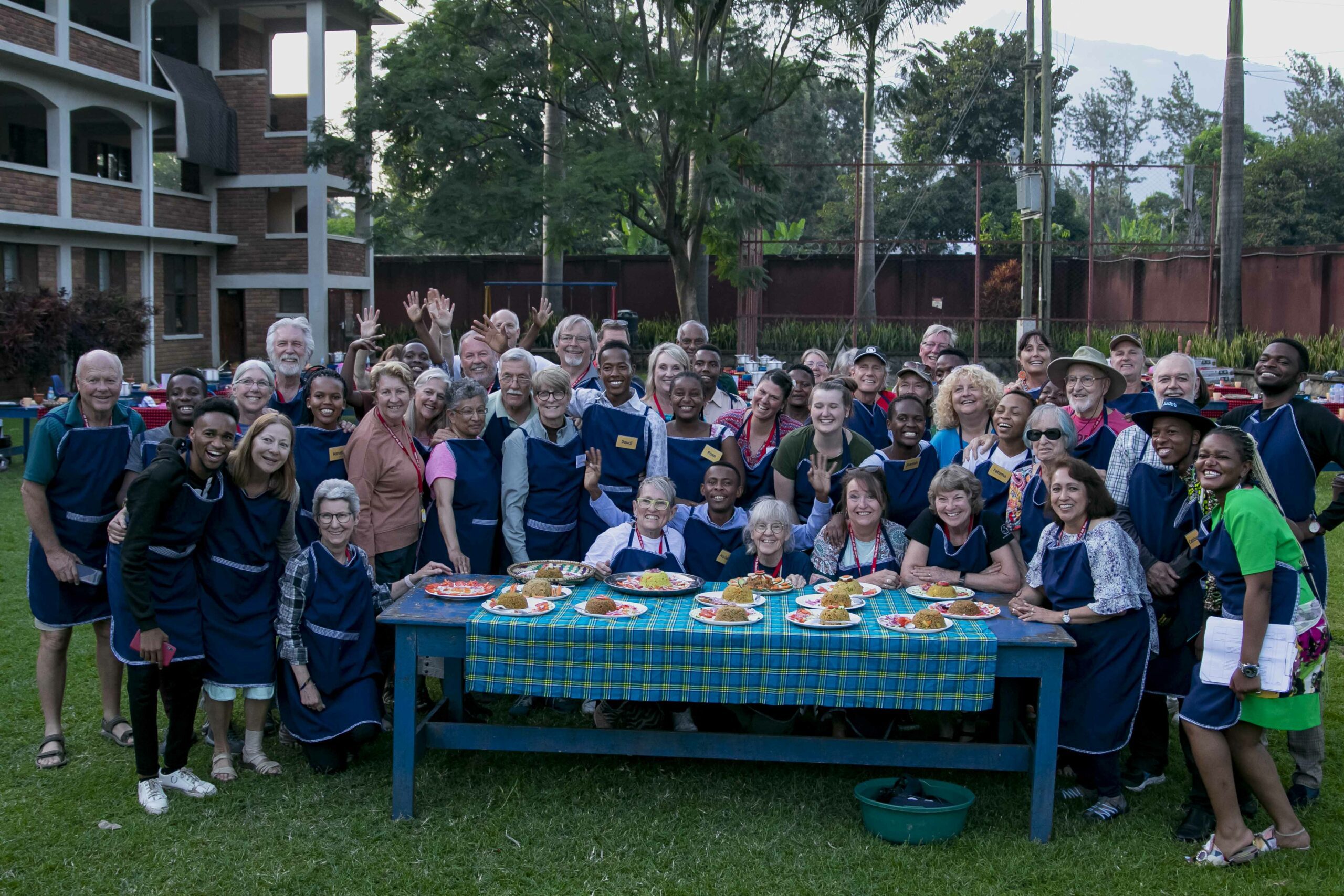Edgar Tarimo is changing the world one brick at a time.
The teenage schoolboy from Tanzania just won a top international environment prize with his inspired project making house bricks out of plastic waste.
The 17-year-old now hopes that one day thousands of homes all over the developing world will be built out of the recycled plastic bottles, bags and packaging – and he wants to thank Australia for making it all possible.
For without Australian teacher Gemma Sisia who set up a school in poverty-stricken northern Tanzania and awarded him a free scholarship, and the thousands of Australians who support her every week with donations, he would never have been able to follow his dream of improving housing in his country.
“Being at her school has taught me how to think outside of the box and to see possibilities and opportunities out there in the world,” says Edgar, smiling.

Schoolboy Edgar Tarimo with his Australian teacher Gemma Sisia, who started a school in Tanzania 16 years ago with just three students.
“Gemma is the person who’s changed my life. I’m a new person because of the education she’s given me. If she hadn’t come and built her school, with other Australians sending over funds to help, I have no idea what I’d be doing now – if anything at all.”
Edgar is just back home from a trip to Sweden to accept the 2017 Children’s Climate Prize for his scheme recycling plastics to build permanent homes. The idea came to him after seeing mud-brick houses in the nation’s capital Dar es Salaam swept away in floods, and knowing how plastic litter is destroying the countryside.
He’s a pupil at the School of St Jude in Tanzania’s second city Arusha started by education pioneer Gemma Sisia. From a sheep property in Armidale, she went to Africa for a holiday, fell in love with her Tanzanian safari guide and then built the school 16 years ago on some land donated by her new father-in-law.
She began with just herself and three pupils. Today, she has 2000 students and 350 staff, and her school is recognised as one of the best in East Africa.
“It’s so wonderful to see kids like Edgar flourishing and it gives energy and inspiration to all the other children to see him do so well,” says Gemma, now with four children of her own, aged between16 and five. “He’s a very humble boy, but he’s passionate and quietly driven to change the world.
“When you have kids who grow up with very little, that struggle can end up becoming a real gift. Of course, it’s not nice to see them struggle, but it helps them appreciate what they’ve got and teaches them to be strong and determined.
“They come from poverty-stricken families and, as a result, they aren’t pushovers. So if someone tells them something isn’t possible, they’ll go on to the next person, or if one door closes, they’ll knock on the next.” “
Edgar has also been recognised as a next-generation young African entrepreneurial leader as first runner-up of the Anzisha Prize, and now employs five people full-time in his building venture Green Venture Recycles, and over 80 part-time who collect discarded plastics for him.
There are hopes that his trash-to-treasure vision may become Africa-wide, and then start to transform housing in the developing world.
Edgar’s sponsor is a Sydney donor to the school, and 90 per cent of the funding to keep the school going is raised by Australians.
“We’re grateful for every donation, however big, or however small. We love Australians visiting us here, or volunteering to help us, or just giving. And when you see kids like Edgar changing the world, then you can see how valuable this is.”
Sue Williams, Domain (read the original article here).




Replies